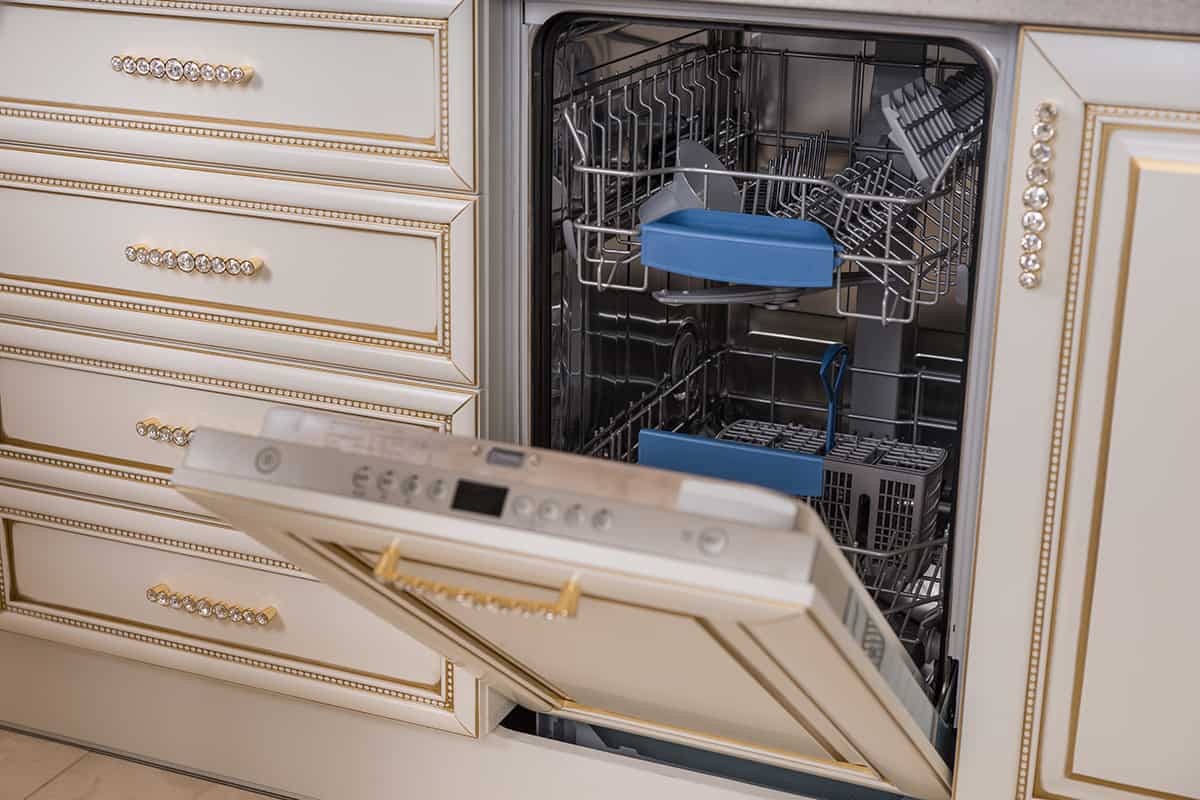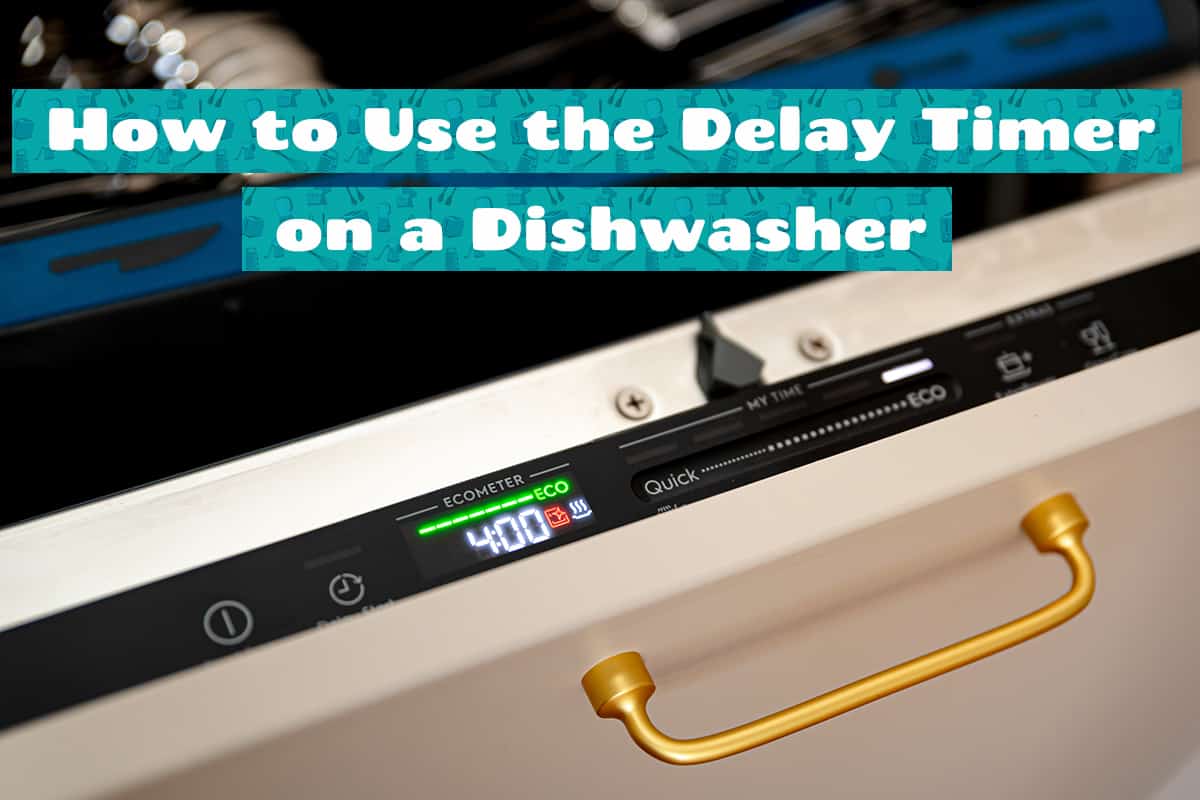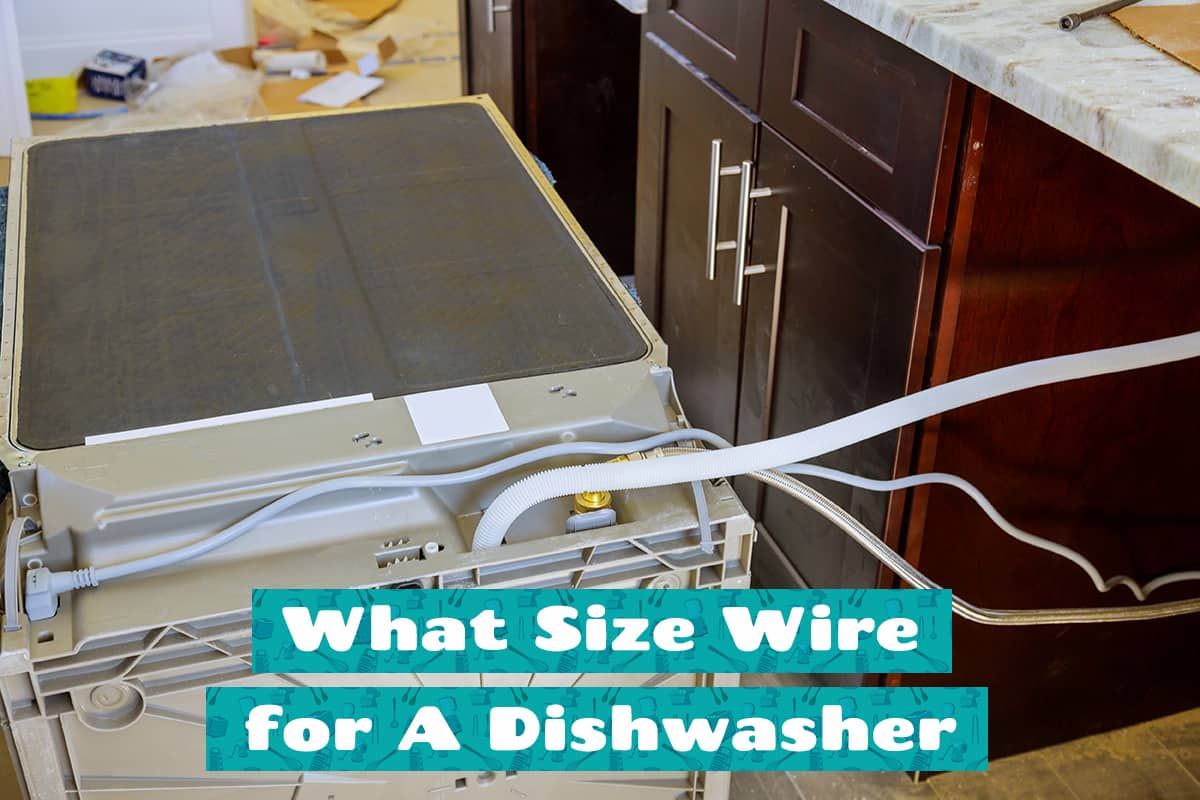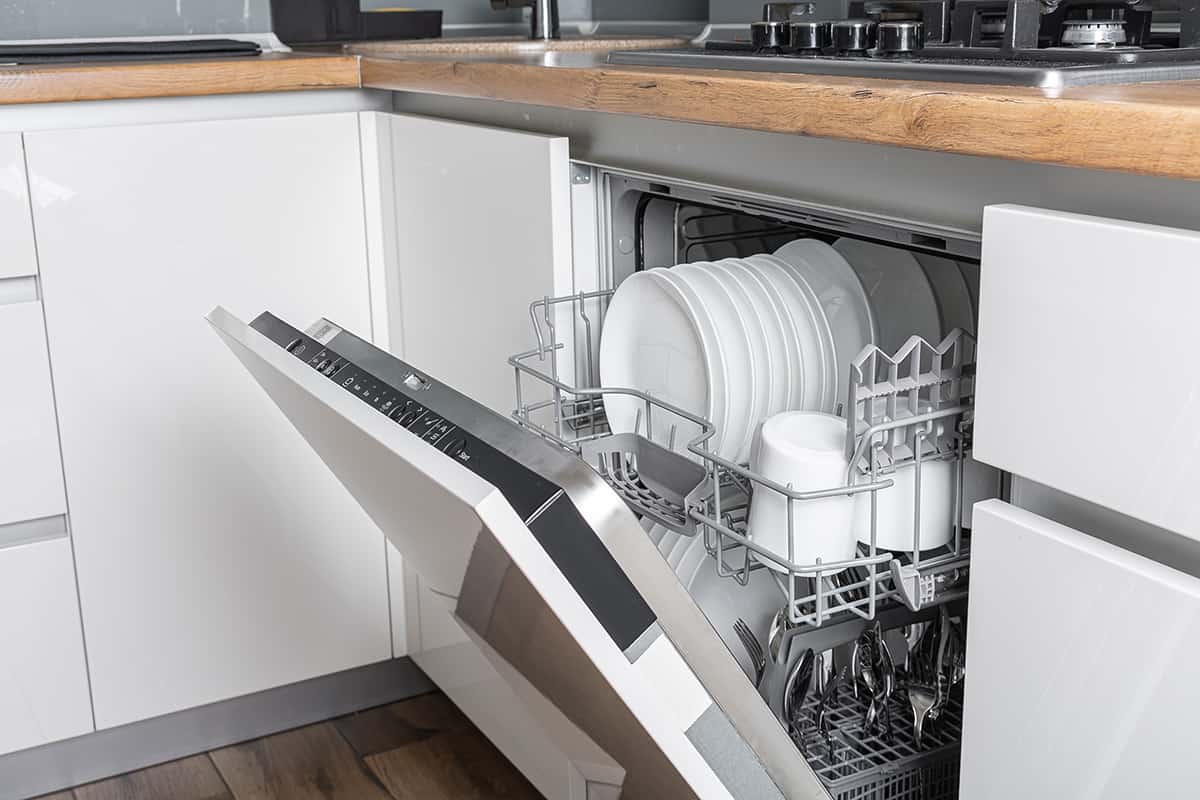While leaving your home unattended won’t do much to affect many household appliances, there’s one that you have to pay special attention to – your dishwasher.
As reliable and durable as they are, dishwashers play around with a ton of water, which can be harmful to the tub, spray arm, pumps, and numerous other components found inside the machine. So, when you’re away, should you leave the dishwasher door open to release moisture?
If you’re going not going to be at home for at least a few days, you should leave your dishwasher’s door slightly ajar. That way, any trapped moisture will evaporate and exit the machine, reducing the risk of developing lime deposits, mold, and bacteria.
However, there’s a bit more to taking care of an unattended dishwasher than to just leaving the door slightly open. In this guide, I’ll explain why you should leave the dishwasher’s door open, what happens to an unused dishwasher, and how to care for your dishwasher before leaving for extended trips.
Why Should I Leave a Dishwasher Door Open Before Going Away?
Say you’re about to go on an out-of-town trip for the next 2 or 3 days. All of your clothes are packed, your accommodations are in order, and now, all that’s left to do is leave. Well, wait just one minute. Before going, what is the condition of your dishwasher?
A dishwasher, which uses water to wash, rinse, and even dry dishes, can have a buildup of moisture. In extreme cases, you will have to deal with standing water at the bottom of the tub, clogged filter assemblies, and blockages in the drain line—all of which can contribute to accelerated bacteria growth inside the machine.
Even without natural sunlight, bacteria already in your dishwasher will begin to thrive on the moisture and heat that is produced from an unused dishwasher. You can eliminate at least some of the bacteria development by opening the dishwasher’s door.
Before leaving, unlock the dishwasher door and pull it open to create a 1-2-inch gap. That way, air can circulate in and out of the machine, and any built-up moisture will have somewhere to go instead of giving bacteria a foothold to grow rapidly.
In fact, if you’re absolutely sure that there there’s no risk of anything hitting the dishwasher door while you’re away, you might as well pull it open all the way. This will allow for better air circulation, and it will also help air out the machine, so foul odors won’t have a chance to stick around.
What Happens to an Unused Dishwasher?
Now, if you’re not going anywhere but don’t plan on using your dishwasher for the next month or so, what’s going to happen to the machine?
As long as you followed the proper after-cycle maintenance procedure, which includes cleaning the filter assembly, then there shouldn’t be any issues. However, you should also allow the dishwasher to air-dry by opening the door for 1-2 days.
That said, not using a dishwasher for too long—e.g., at least 1 month—can lead to some pretty devastating effects. The excess dryness inside unused dishwashers can lead to cracks along the inside walls, and the silicone seals will begin to harden and possibly split. And the worst possible thing that could happen is that the electrical components, such as the drain pump and main motor, will stall when you eventually turn the machine on.
So, as you can see, if you’re going to leave your dishwasher unattended and unused for extended periods of time, leaving the door open isn’t the only thing you should do to increase the machine’s longevity.
How to Prepare Your Dishwasher Before You Go

So, I’ve established that you need to open your dishwasher’s door before you head out the door, but is that all you need to do? Not by a long shot.
Up to 2 weeks in storage
If you’re leaving your home for up to 2 weeks, you should follow these steps to ensure that your dishwasher will be in working order when you get back.
Run an empty rinse cycle—Allow the dishwasher to clean its tub by removing the dishracks and running a rinse cycle. That way, any food remnants hiding in the corners will be wiped away.
Empty the filter—Remove the filter from the bottom of the dishwasher’s tub and toss the contents in the garbage. Soak the filter assembly for 10 minutes before gently scrubbing the components with a brush, being careful not to apply too much pressure to the fine cylindrical filter’s mesh screen. When the filter is emptied and removed, place it back inside the dishwasher.
Air-dry the dishwasher—You can do this by leaving the dishwasher’s door open as far as it can go and letting it sit in that position for a couple of hours. When the inside of the dishwasher is completely dry, swing the door back up but leave a 1- to 2-inch gap for any remaining moisture particles to evaporate.
More than 2 weeks in storage
However, if your dishwasher is going into storage for the long term (longer than 2 weeks), then you should deep-clean the dishwasher.
Wipe the tub with a 1:4 solution of vinegar and water—Make sure you do not use too much vinegar since the acidity may harm the stainless-steel tub. You can moisten a microfiber towel with the solution or use a spray bottle to apply the solution to the dishwasher’s tub.
Allow the solution to sit for 30 minutes—Let the solution sit in order for the chemicals in the vinegar to react to the odor molecules and bacteria residing inside the dishwasher.
Run an empty rinse cycle—If you still catch a whiff of the vinegar solution inside your dishwasher, run an empty rinse cycle for a second time.
Empty the filter—Deep-clean the filter assembly following the instructions provided above.
Air-dry the dishwasher—Allow the dishwasher to dry thoroughly, following the instructions provided above.
Will an Unused Dishwasher Break?
Unlike other household appliances, dishwashers remain in tip-top shape through regular use. When you don’t run a dishwasher for extended periods of time, the pumps and motor might set in their position, and it will take quite a bit of maintenance work to restore them to working order.
For the most part, you can leave a dishwasher unused for up to 7 days without worrying about its internal components deteriorating. However, after the 7-day mark is when troubles may begin to arise. But if you followed the steps provided in the previous section, your dishwasher should remain fine for several months at a time.
That said, before you try running a wash cycle on a dishwasher that spent weeks or months in storage, you should try using a cleaning tablet or liquid to get rid of any bacteria or mold spots that might have developed in the tub.
Do I Need to Run the Dishwasher When I Get Back?
Yes, you certainly should. The longer you leave your dishwasher unused, the more problems it will develop. Remember: a dishwasher in regular use is a healthy dishwasher.
Just make sure to deep-clean your dishwasher before you leave and after you get back. That way, you will reduce the risk of bacteria and mold development. If you find anything inside the tub when you get back from your trip, it’ll be easier to remove if you pre-washed the dishwasher. If your dishwasher has a super-heated cycle, I recommend running that cycle when you get back.
Read also:






